PLEASE BE AWARE THAT THERE IS NO BANK ACCOUNT OF AZIZ MEDICAL CENTER IN WHICH FEE CAN BE DEPOSITED FOR THE MEDICAL TEST OR FOR TAKING APPOINTMENT. PLEASE BE AWARE OF ANY SCAMS AND ONLY RELY ON INFORMATION PROVIDED TO YOU BY OFFICAL CHANNEL OF THE MEDICAL CENTER. THE MEDICAL CENTER SHALL NOT BE RESPONSIBLE FOR ANY FINANCIAL LOSS.
WE HAVE NO AGENTS OR REPRESENTATIVES OUT SIDE THE MEDICAL CENTER TO RECEIVE ANY PAYMENT FOR ANY OF THE SERVICES.
COVID-19 Vaccine


COVID-19 vaccines help our bodies develop immunity to the virus that causes COVID-19 without us having to get the illness. Different types of vaccines work in different ways to offer protection. But with all types of vaccines, the body is left with a supply of “memory” T-lymphocytes as well as B-lymphocytes that will remember how to fight that virus in the future.
It typically takes a few weeks after vaccination for the body to produce T-lymphocytes and B-lymphocytes. Therefore, it is possible that a person could be infected with the virus that causes COVID-19 just before or just after vaccination and then get sick because the vaccine did not have enough time to provide protection.
It typically takes a few weeks after vaccination for the body to produce T-lymphocytes and B-lymphocytes. Therefore, it is possible that a person could be infected with the virus that causes COVID-19 just before or just after vaccination and then get sick because the vaccine did not have enough time to provide protection.
Sometimes after vaccination, the process of building immunity can cause symptoms, such as fever. These symptoms are normal and are signs that the body is building immunity.
Why Should I Get the COVID-19 Vaccine?
It's the best way to slow this deadly pandemic
We understand that you might be uneasy about getting your COVID-19 vaccine. Maybe you’re not sure what to expect. Or you aren’t sure if it’s right for you.
Here’s why you should consider getting your vaccine:
We understand that you might be uneasy about getting your COVID-19 vaccine. Maybe you’re not sure what to expect. Or you aren’t sure if it’s right for you.
Here’s why you should consider getting your vaccine:
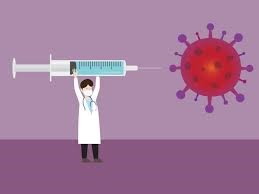
- To protect yourself: Getting the vaccine means there’s up to a 95% chance that you’ll personally be protected from getting COVID-19.
- To protect those around you: If you get sick, you could spread the virus to others. Getting the vaccine, while continuing to wear a mask and practice social distancing, will help keep your friends and family safe, especially those who may be at risk for a severe case of COVID-19.
- To protect your community: For the vaccine to be effective against COVID-19, we need enough people — 50% to 80% — to get vaccinated. So, even though you may have to wear a mask for a little longer until more people have received it, we know that every person that gets vaccinated is a small step in the right direction
Benefits of Getting a COVID-19 Vaccine
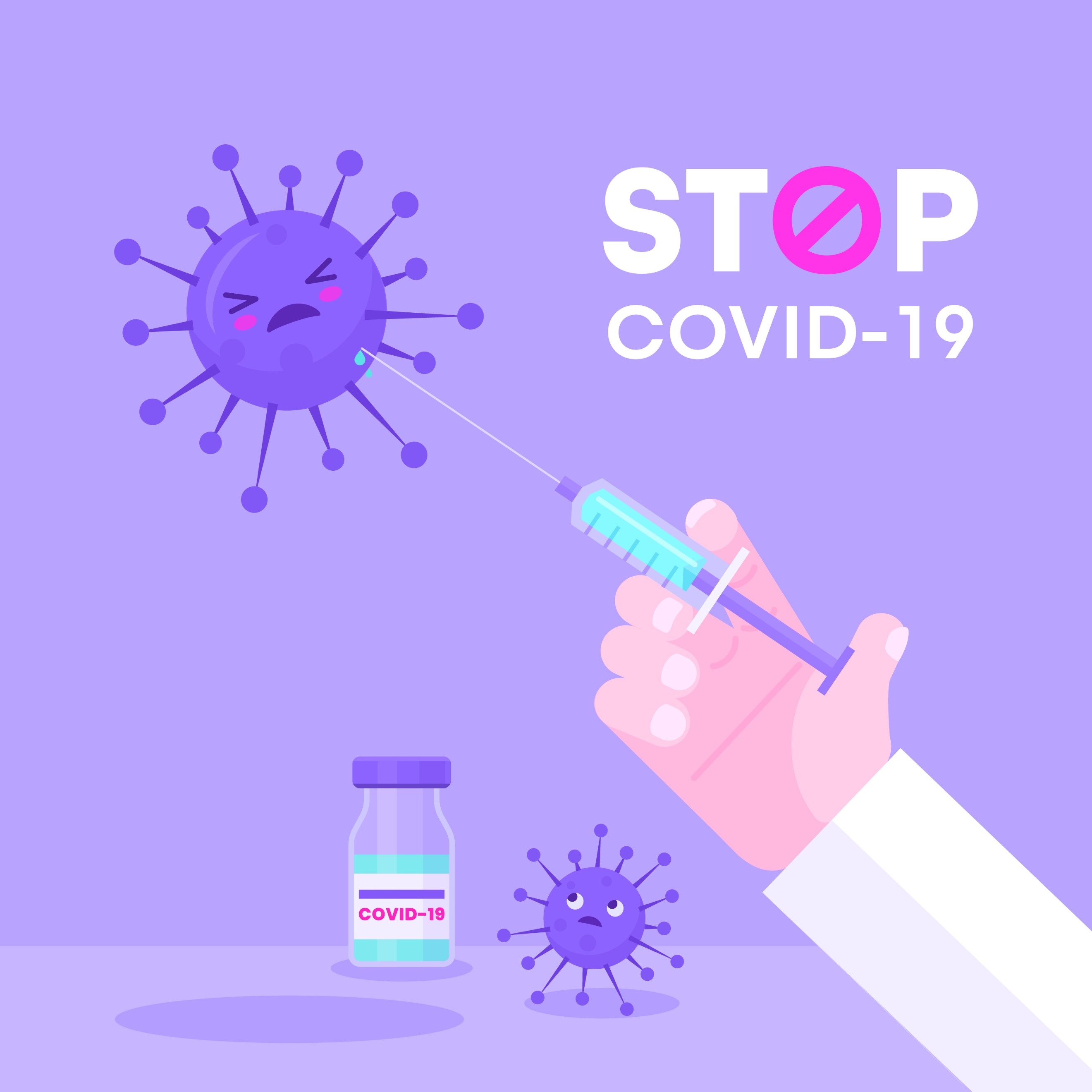
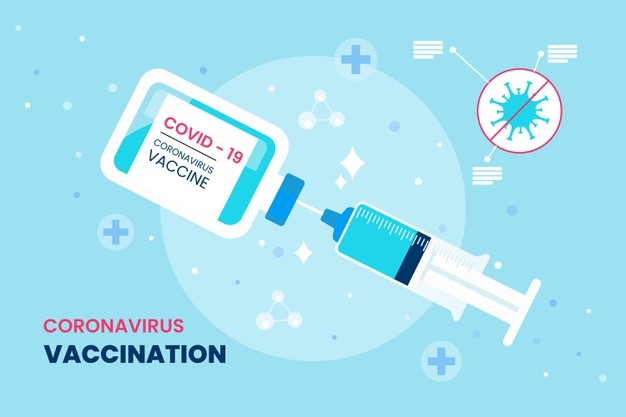
While more COVID-19 vaccines are being developed as quickly as possible, routine processes and procedures remain in place to ensure the safety of any vaccine that is authorized or approved for use. Safety is a top priority, and there are many reasons to get vaccinated.
COVID-19 vaccination will help keep you from getting COVID-19
- All COVID-19 vaccines currently available have been shown to be highly effective at preventing COVID-19.
- All COVID-19 vaccines that are in development are being carefully evaluated in clinical trials and will be authorized or approved only if they make it substantially less likely you’ll get COVID-19.
- Based on what we know about vaccines for other diseases and early data from clinical trials, experts believe that getting a COVID-19 vaccine may also help keep you from getting seriously ill even if you do get COVID-19.
- Getting vaccinated yourself may also protect people around you, particularly people at increased risk for severe illness from COVID-19.
- Experts continue to conduct more studies about the effect of COVID-19 vaccination on severity of illness from COVID-19, as well as its ability to keep people from spreading the virus that causes COVID-19.
COVID-19 vaccination is a safer way to help build protection
- Wearing masks and social distancing help reduce your chance of being exposed to the virus or spreading it to others, but these measures are not enough. Vaccines will work with your immune system so it will be ready to fight the virus if you are exposed.
- The combination of getting vaccinated and following local health authoritie's recommendations to protect yourself and others will offer the best protection from COVID-19.
- Stopping a pandemic requires using all the tools we have available. As experts learn more about how COVID-19 vaccination may help reduce spread of the disease in communities, local health authoritie's will continue to update the recommendations to protect communities using the latest science.
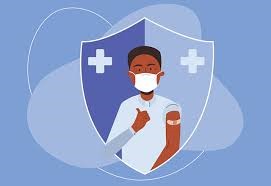
DO I NEED TO TAKE AN APPOINTMENT
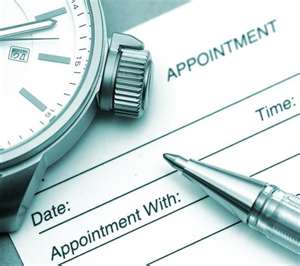
Covid 19 vaccine intending recipients need to have a valid appointment letter/email to receive the vaccination. This is mandatory to enter the data on NIMS portal. We regret that we shall not be able to administer vaccine if one does not a valid appointment at the medical center.


Frequently asked questions & answers
1. what are the side effects of the vaccine?
Any vaccine can cause some mild side effects. The main side effects from vaccines are some soreness, redness or swelling where you had the injection, a headache or mild fever and fatigue. Most of these can be managed with some mild pain relief medicine and are no cause for alarm.
2. Do people who have had COVID-19 and recovered need to get vaccinated?
People who have had COVID-19 and recovered should still be vaccinated. The protection someone gains from having COVID-19 varies from person to person. Because this virus is new, experts don’t yet know how long any natural immunity might last. Even if you have already had COVID-19, you should still get the COVID-19 vaccine when you can. You should discuss any treatments you had with your doctor before you get vaccinated.
3. Is it true? Can COVID-19 vaccines alter my DNA?
COVID-19 vaccines do not alter your DNA. Some of the new COVID-19 vaccines use a fragment of Messenger RNA (mRNA) to instruct your body to make an immune response against COVID-19. The mRNA does not do anything to your DNA.
4. Is it true? Can COVID-19 vaccines give you COVID-19?
None of the approved vaccines contain the live virus. This means they cannot give you COVID-19. Some of the side effects from COVID-19 vaccinations, such as fever and fatigue can mimic the symptoms of COVID-19. These symptoms are normal and are a sign that the body is building protection against the virus that causes COVID-19. It usually takes a few weeks for the body to build immunity (protection against the virus that causes COVID-19) after full vaccination. That means it’s possible a person could be infected with COVID-19 just before or just after vaccination and still get sick. It is important to see your health professional if you think this may be the case.
5. Do fit and healthy people must get vaccinated?
COVID-19 is a highly infectious disease. Even if you’re fit and healthy you can still get COVID-19 and pass it onto someone else who may get very sick. Just because you’re fit and healthy doesn’t mean you won’t experience long-standing consequences from infection. You might have heard the term ‘Long COVID’ or ‘Long Haulers’. We are seeing a growing number of COVID patients who are still struggling with symptoms after the infection has passed. This includes fatigue, breathlessness, and chest pain.
6. How long does it take to have immunity after vaccination?
Whilst partial protection against COVID-19 may be as soon as 12 days after the first dose, this protection is likely to be short lived. The second dose encourages the body to create stronger protection (immunity) against the SARS-CoV-2 virus that causes COVID-19.
7. Is the COVID-19 Vaccine Safe?
All vaccines must go through rigorous clinical trials to determine safety and efficacy, with at least two months of patient follow-up. As with many vaccines, you may be sore where it’s injected. You may also develop fatigue, fever, and muscle aches afterward. This seems to be more common with the second dose of vaccine. If this happens, it means your immune system is taking notice of the vaccine and reacting.
8. Should I be concerned about a severe allergic reaction to the COVID-19 vaccine?
No. Allergic reactions, including shortness of breath and hives, were uncommon during COVID-19 vaccine trials. All recipients receiving the vaccine will be monitored for at least 15 minutes after vaccination for possible immediate hypersensitive reactions. If you have a history of allergic reactions to vaccines, talk to your healthcare provider before receiving a COVID-19 vaccine.
9. If I’m pregnant, breastfeeding or trying to conceive, can I get immunized?
While pregnant and breastfeeding women weren’t included in the first COVID-19 vaccine trials, safety data is reassuring. Since the vaccines don’t contain the live virus, they aren’t thought to increase the risk of infertility, miscarriage during the first or second trimester, stillbirth, or birth defects. There’s also no evidence to suggest the vaccine is a risk to a breastfeeding baby. That said, getting the vaccine while trying to conceive, during pregnancy or when you are breastfeeding is a personal choice. We encourage you to talk to your Ob/Gyn to help you decide together.
10. how long does protection from a COVID- 19 vaccine last?
We don’t know how long protection lasts for those who are vaccinated. What we do know is that COVID-19 has caused very serious illness and death for a lot of people. If you get COVID-19, you also risk giving it to loved ones who may get very sick. Getting a COVID-19 vaccine is a safer choice. Experts are working to learn more about both natural immunity and vaccine-induced immunity.
Any vaccine can cause some mild side effects. The main side effects from vaccines are some soreness, redness or swelling where you had the injection, a headache or mild fever and fatigue. Most of these can be managed with some mild pain relief medicine and are no cause for alarm.
2. Do people who have had COVID-19 and recovered need to get vaccinated?
People who have had COVID-19 and recovered should still be vaccinated. The protection someone gains from having COVID-19 varies from person to person. Because this virus is new, experts don’t yet know how long any natural immunity might last. Even if you have already had COVID-19, you should still get the COVID-19 vaccine when you can. You should discuss any treatments you had with your doctor before you get vaccinated.
3. Is it true? Can COVID-19 vaccines alter my DNA?
COVID-19 vaccines do not alter your DNA. Some of the new COVID-19 vaccines use a fragment of Messenger RNA (mRNA) to instruct your body to make an immune response against COVID-19. The mRNA does not do anything to your DNA.
4. Is it true? Can COVID-19 vaccines give you COVID-19?
None of the approved vaccines contain the live virus. This means they cannot give you COVID-19. Some of the side effects from COVID-19 vaccinations, such as fever and fatigue can mimic the symptoms of COVID-19. These symptoms are normal and are a sign that the body is building protection against the virus that causes COVID-19. It usually takes a few weeks for the body to build immunity (protection against the virus that causes COVID-19) after full vaccination. That means it’s possible a person could be infected with COVID-19 just before or just after vaccination and still get sick. It is important to see your health professional if you think this may be the case.
5. Do fit and healthy people must get vaccinated?
COVID-19 is a highly infectious disease. Even if you’re fit and healthy you can still get COVID-19 and pass it onto someone else who may get very sick. Just because you’re fit and healthy doesn’t mean you won’t experience long-standing consequences from infection. You might have heard the term ‘Long COVID’ or ‘Long Haulers’. We are seeing a growing number of COVID patients who are still struggling with symptoms after the infection has passed. This includes fatigue, breathlessness, and chest pain.
6. How long does it take to have immunity after vaccination?
Whilst partial protection against COVID-19 may be as soon as 12 days after the first dose, this protection is likely to be short lived. The second dose encourages the body to create stronger protection (immunity) against the SARS-CoV-2 virus that causes COVID-19.
7. Is the COVID-19 Vaccine Safe?
All vaccines must go through rigorous clinical trials to determine safety and efficacy, with at least two months of patient follow-up. As with many vaccines, you may be sore where it’s injected. You may also develop fatigue, fever, and muscle aches afterward. This seems to be more common with the second dose of vaccine. If this happens, it means your immune system is taking notice of the vaccine and reacting.
8. Should I be concerned about a severe allergic reaction to the COVID-19 vaccine?
No. Allergic reactions, including shortness of breath and hives, were uncommon during COVID-19 vaccine trials. All recipients receiving the vaccine will be monitored for at least 15 minutes after vaccination for possible immediate hypersensitive reactions. If you have a history of allergic reactions to vaccines, talk to your healthcare provider before receiving a COVID-19 vaccine.
9. If I’m pregnant, breastfeeding or trying to conceive, can I get immunized?
While pregnant and breastfeeding women weren’t included in the first COVID-19 vaccine trials, safety data is reassuring. Since the vaccines don’t contain the live virus, they aren’t thought to increase the risk of infertility, miscarriage during the first or second trimester, stillbirth, or birth defects. There’s also no evidence to suggest the vaccine is a risk to a breastfeeding baby. That said, getting the vaccine while trying to conceive, during pregnancy or when you are breastfeeding is a personal choice. We encourage you to talk to your Ob/Gyn to help you decide together.
10. how long does protection from a COVID- 19 vaccine last?
We don’t know how long protection lasts for those who are vaccinated. What we do know is that COVID-19 has caused very serious illness and death for a lot of people. If you get COVID-19, you also risk giving it to loved ones who may get very sick. Getting a COVID-19 vaccine is a safer choice. Experts are working to learn more about both natural immunity and vaccine-induced immunity.
